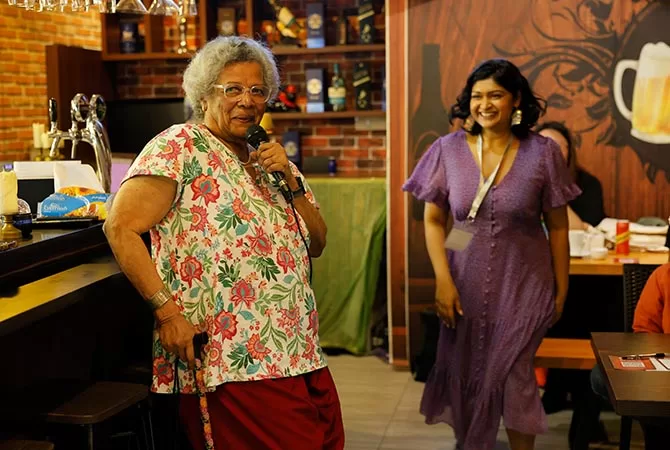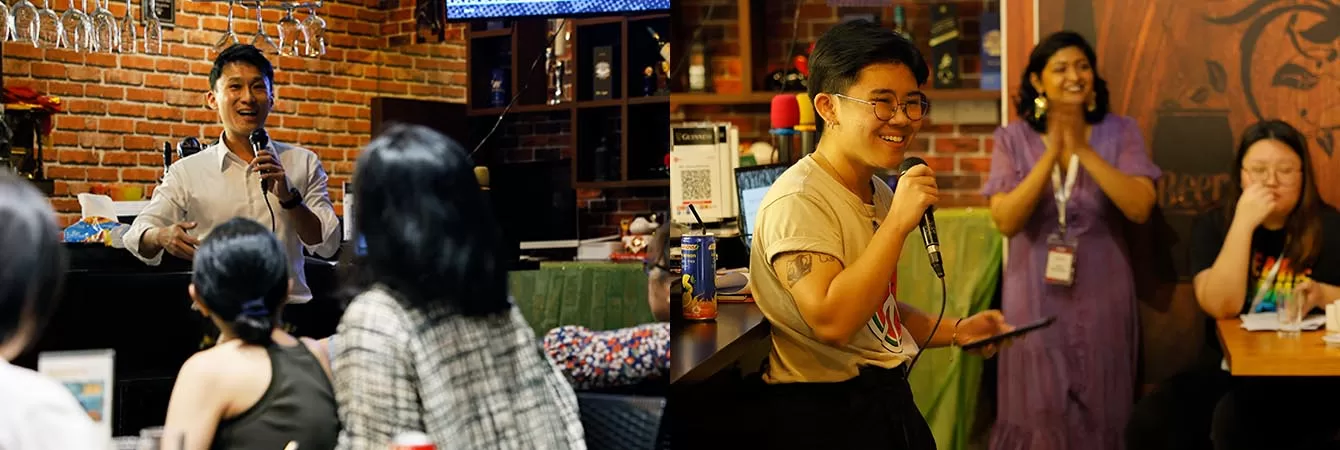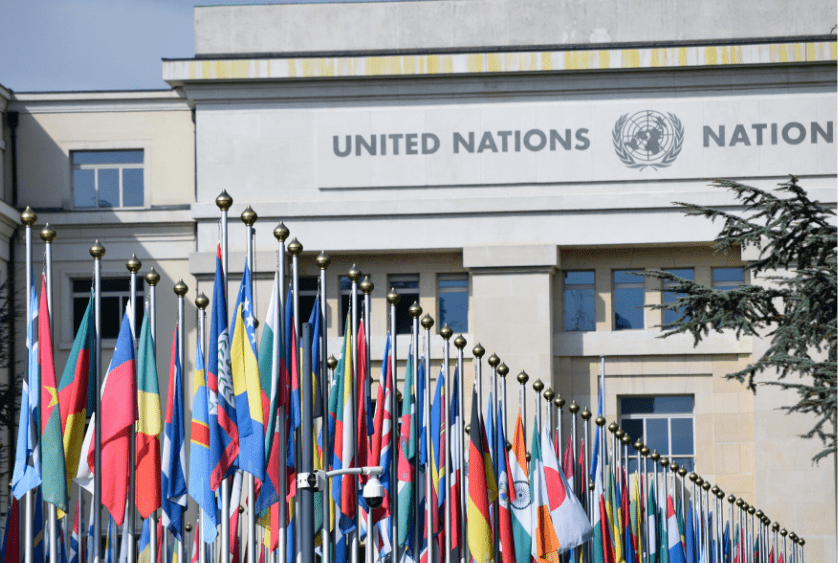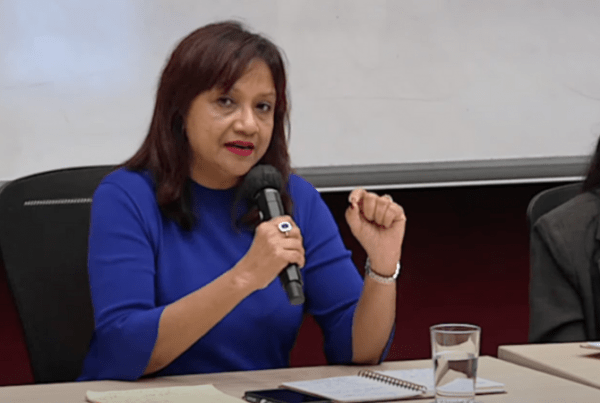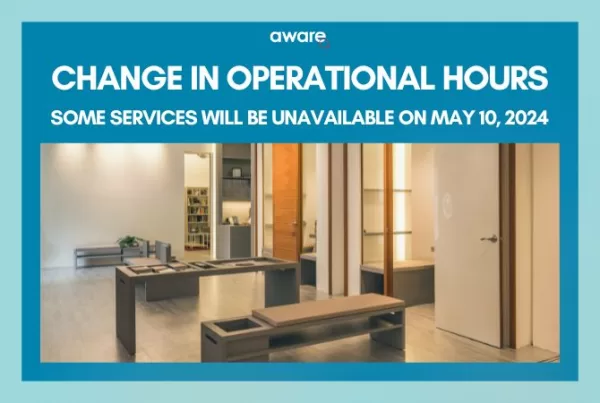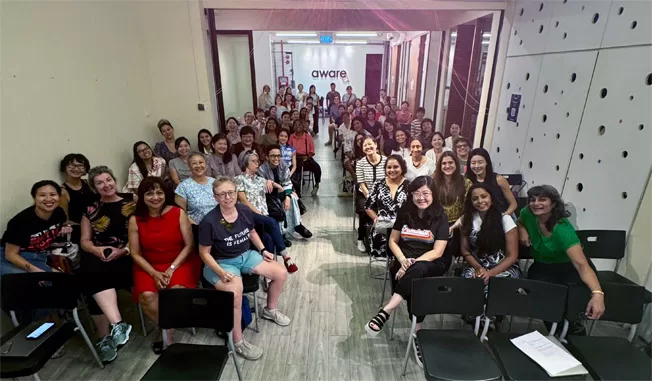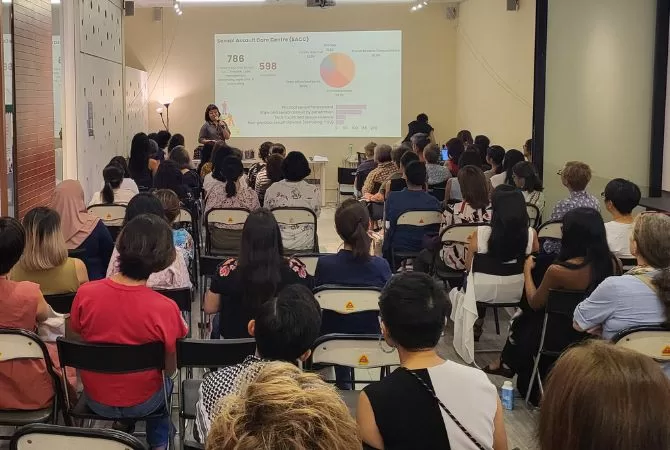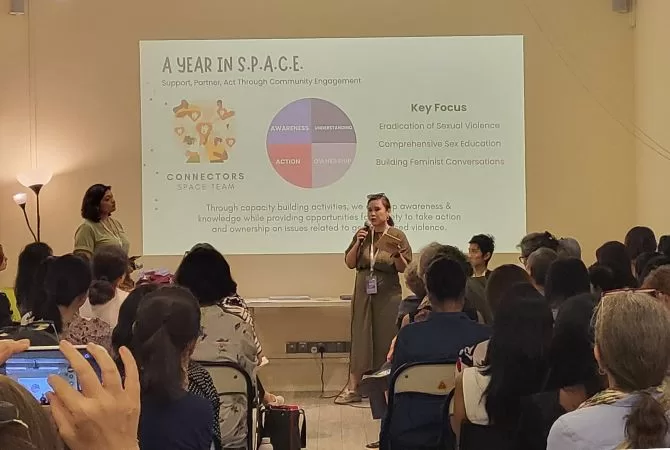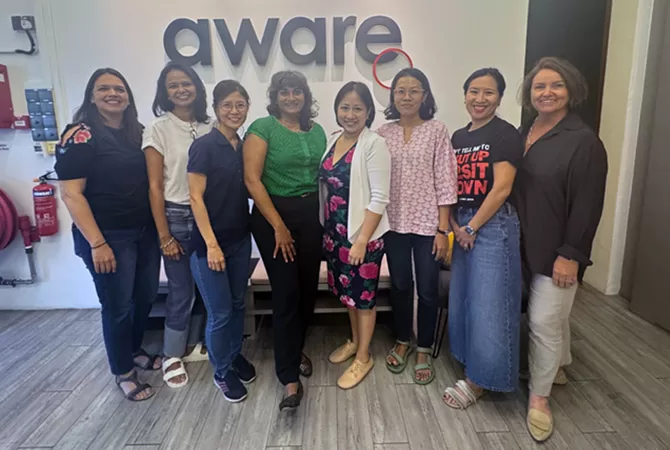On May 31, 2024, a group of AWARE members and supporters gathered to celebrate a significant moment in Singapore’s civil society history: the 2009 AWARE saga. The night was filled with storytelling, laughter, and a powerful sense of shared purpose.
In 2009, AWARE faced a dramatic takeover, where a group of newcomers joined the organisation and unexpectedly won control of the board during the Annual General Meeting. It quickly became clear that they, the “New Guard”, who were from a particularly religious group, had ulterior motives for doing so, coming from principles that did not align with AWARE’s ethos.
AWARE’s core members, the “Old Guard”, spun into action, to save AWARE’s mission as an organisation committed to gender equality. They eventually called for an EOGM (Extraordinary General Meeting) on May 2, 2009, when the Old Guard triumphantly led the 3,000 strong membership in ousting the New Guard and electing a new Board.
That fateful event inspired the award-winning SAGA podcast in 2020 and has continued to spark discussions to this day about diversity, speaking up, solidarity, and social justice in Singapore.
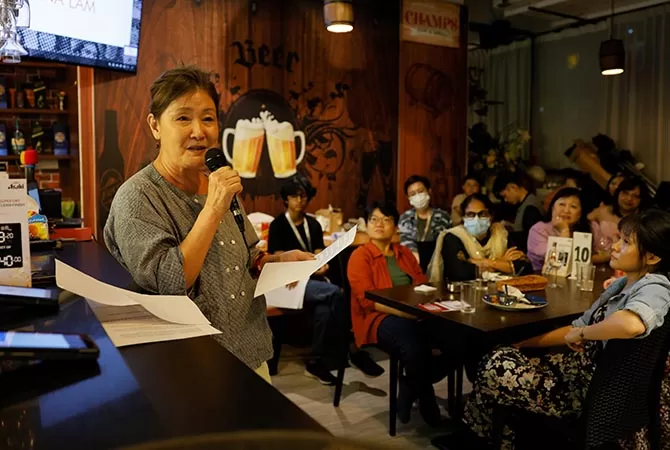 Last week’s 15-year reunion kicked off with an open mic session, where key figures from the EOGM shared their thoughts and memories. Former AWARE president Dana Lam (left) delivered a speech that resonated deeply with the audience.
Last week’s 15-year reunion kicked off with an open mic session, where key figures from the EOGM shared their thoughts and memories. Former AWARE president Dana Lam (left) delivered a speech that resonated deeply with the audience.
She highlighted the “radical space” that AWARE has always embodied and how the events at the EOGM exemplified the organisation’s thoughtful and empowering approach.
She also pointed out that the EOGM served as a powerful demonstration of the unique contributions women can bring to leadership, showcasing qualities like thoroughness, care, and good humour.
Constance Singam (main photo), an AWARE founding member and an iconic character of the saga, took to the floor as well. At the EOGM, Constance had rallied the crowd with her now-famous “Where were you?” speech, where she questioned the New Guard’s experience and intentions behind the takeover.
“We struggled, but we fought on,” Constance said.
“One thing I tell everyone I meet is that you have to be an activist. You cannot stand on the sidelines. It will give you skills and courage you never thought you had.”
Remy Choo (below, left) was a law student back in 2009. He reported for The Online Citizen during the EOGM and also took to the mic. He expressed his enduring gratitude to the AWARE community.
“The people who put the chips down, and had something at stake [were the AWARE community]. They spoke up for and defended something that they believed in: equality and an idea of how society should be that was different from existing power structures,” Remy said. “And for that… I am eternally grateful.”
Another attendee, Elijah Tay (above, right), who was too young to attend the EOGM, was deeply inspired by the podcast, and spoke about the “fired up” spirit of the movement and the commitment to protecting hard-won rights.
The night wasn’t just about reliving the past.
Dana also touched upon the positive ripple effects of the EOGM. She highlighted how the saga has empowered younger generations to step up and organise around issues they care about, lessening the burden on AWARE to be the sole champion for all causes.
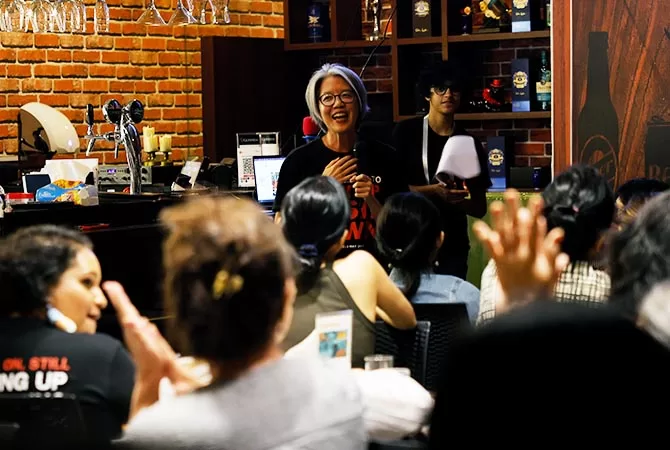 Corinna Lim (right), our Executive Director, highlighted the many significant changes that Singapore has seen since 2009, on issues AWARE has advocated for.
Corinna Lim (right), our Executive Director, highlighted the many significant changes that Singapore has seen since 2009, on issues AWARE has advocated for.
Key wins include the Protection from Harassment Act (2014), fairer policies for unwed and single mothers (2016-2020), amendments to the Penal Code, enhancing the sexual assault laws and criminalising marital rape (2019), the expanded definition of family violence to cover emotional and psychological violence and coercive control (2023), and the doubling of paternity leave (2023).
This year (2024) will also see the Workplace Fairness Act come into play and the right for employees to ask for flexible working arrangements.
Looking ahead, Constance said it was so nice to see an increasing number of young people taking up activism in Singapore.
“Young people now have more courage to speak up, and they are more articulate and knowledgeable than I ever was.”
The reunion served as a powerful reminder of the impact the 2009 AWARE saga had on Singapore’s civil society landscape. It was a night of celebration, not just of the past but of the progress that has been made and the ongoing pursuit of positive change.




